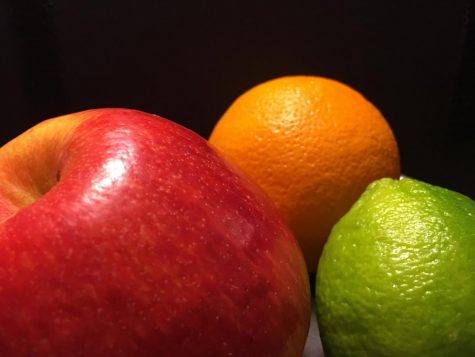Fending off winter blues
As the winter continues on for more weeks, it can sometimes be hard to stay positive. Here are some tips to help.
The weather outside is freezing cold, and the snow is piling up. The feeling of being stuck inside can start to affect people’s moods. They might feel lazier or experience changes in appetite. While most people feel cooped up from time to time, some are affected by Seasonal Affective Disorder (SAD) or Seasonal Depression. This is a type of depression that begins and ends around the same time every year. So if it’s SAD, or just mild winter blues, here are some tips to help.
Make the environment light
Winter days have less sunlight, which can negatively affect your mood. Serotonin, the chemical that regulates mood, produces most during daylight hours. Since sunlight isn’t as strong during winter, less serotonin is created. People can combat this by buying a light box, which produces artificial sunlight. It’s recommended to sit in front of the light box for 20 to 30 minutes every day. For instance, Travis Henderson, social studies teacher, owns a Nature Bright lightbox.
“Tanning is not a great option because you need to get the sunlight in through your eyes, and when you tan you should be wearing eye protection so the UV lights are not getting into your eyes…. It’s better to buy a happy lamp like this one,” Henderson said.
Exercise regularly
When the temperatures start to drop, so does many people’s motivation to exercise. However, exercise can help improve mood and reduce anxiety. Any type of exercise can help release the hormones that help not just running on a treadmill. It can also help stationary biking, dancing, indoor swimming and even some outdoor activities. It’s important to do a type of physical activity that you enjoy.
“When it’s cold in the winter the natural tendency is to crawl under a blanket and sit next to the fireplace and check out. It’s natural to want to do that, but fighting that tendency and getting to the gym, getting even thirty minutes of exercise can make a huge difference,” Henderson said.
Meditation
Many types of meditation have been in practice for a very long time. One such form is mindful meditation, which focuses on acceptance of one’s surroundings and breathing pattern. Another is called mantra meditation. This type uses repetition of a calming word to reduce stress. Although stress alone usually does not cause winter blues, it can contribute to them. Therefore, these forms and others can be helpful.
Eat the right food

Certain foods can affect your neurological hormones and improve your mood. Many fresh fruits should be added to a winter diet such as bananas. Nuts are another important food to look out for. Brazilian nuts, in particular, have vitamins that can contribute to depression when not enough is consumed. Fish can also help with the winter blues because of its richness in omega 3. And last but not least, oatmeal can help improve your mood. This is due to the fact that oatmeal is a dense carbohydrate and has been found to increase serotonin synthesis.
“I would say the more you can eat natural and clean the better off you are so like salads . . . nuts, berries and fresh fruits . . . things you know you should be eating but just don’t sound as tasty when it’s -20 outside,” Henderson said.
There is a large range of severity when it comes to Seasonal Affective Disorder. To be officially diagnosed, The National Institute of Mental Health says someone must meet the criteria for depression during a specific season for at least two years in a row. However, it can be difficult for a mental health professional to actually diagnose SAD as symptoms are similar to other mental health conditions. Even after diagnoses, treatments vary. Some people can just follow the tips above, while others might require more. Many clinical trials are still being run around the world for SAD and other forms of depression. For more information, seek a doctors help as none of these tips should be used as a substitute for medical advice or treatment of depression.
Your donation will support the student journalists of West High School. Your contribution will allow us to purchase Scholarship Yearbooks, newsroom equipment and cover our annual website hosting costs.

Reagan Hart is a senior at West. It is her second year on staff and she is a reporter and distribution manager. Besides newspaper, Reagan...



